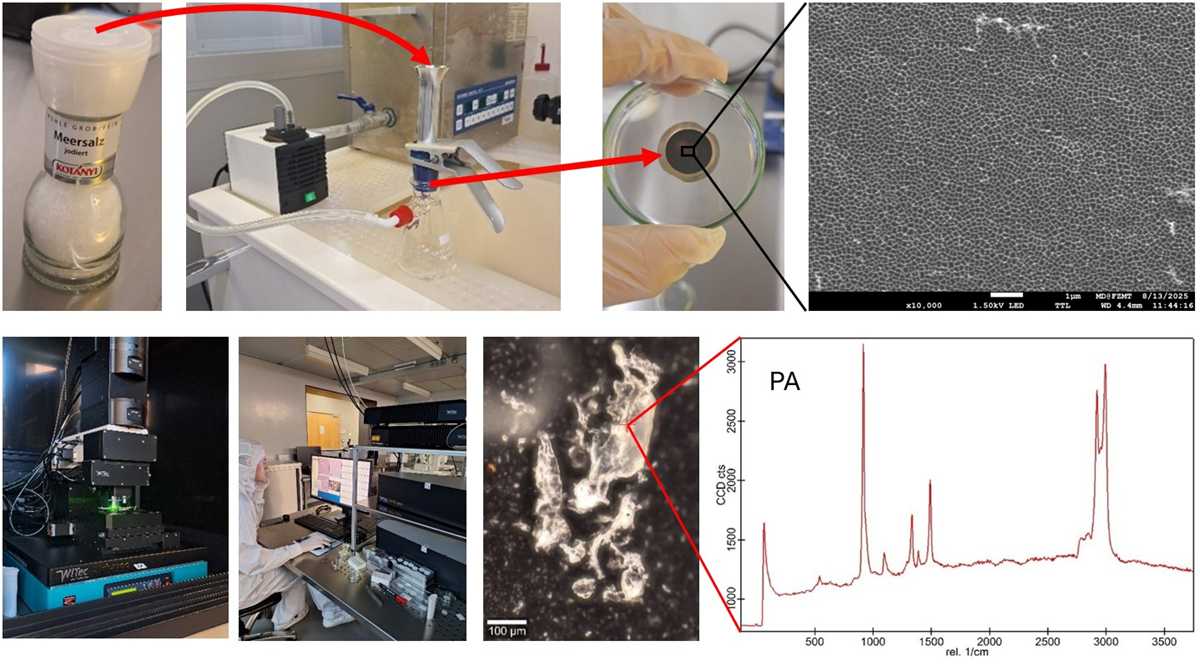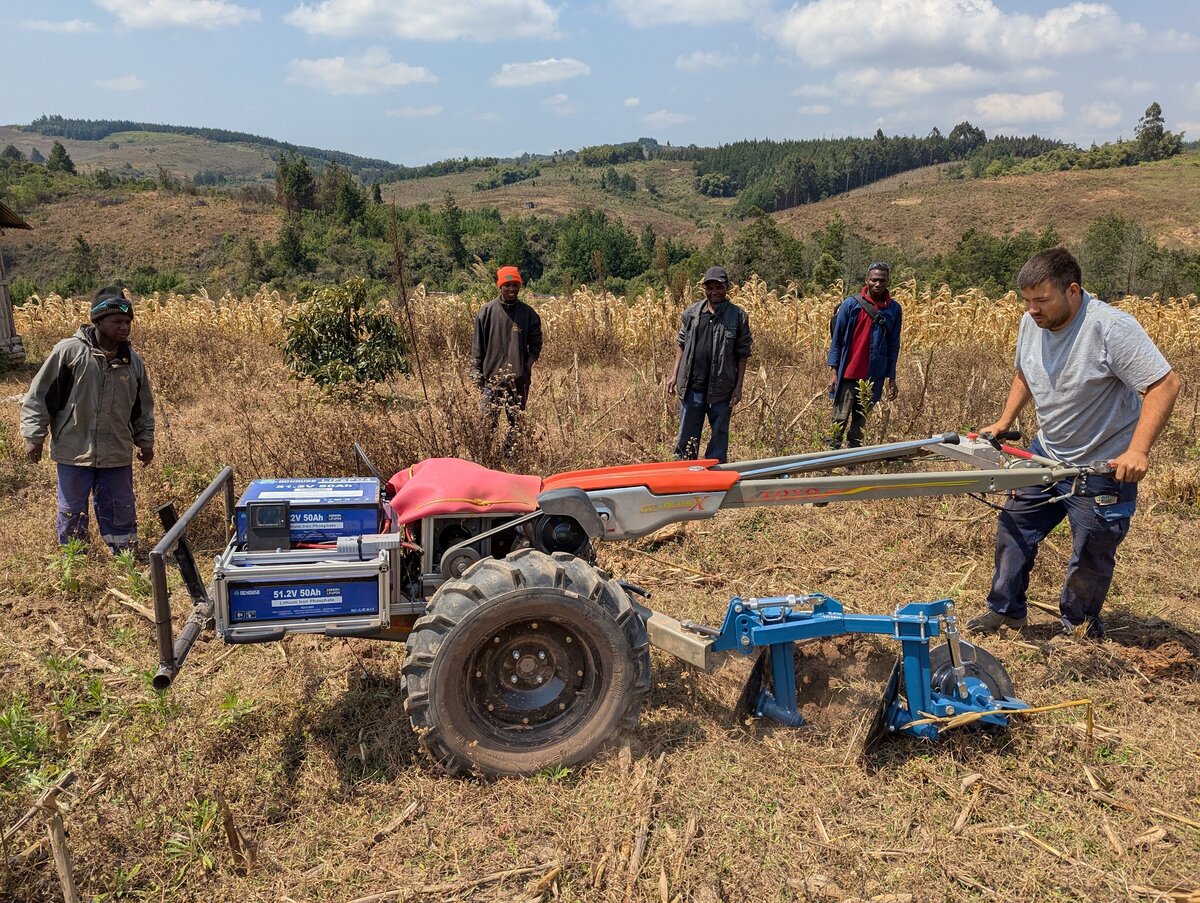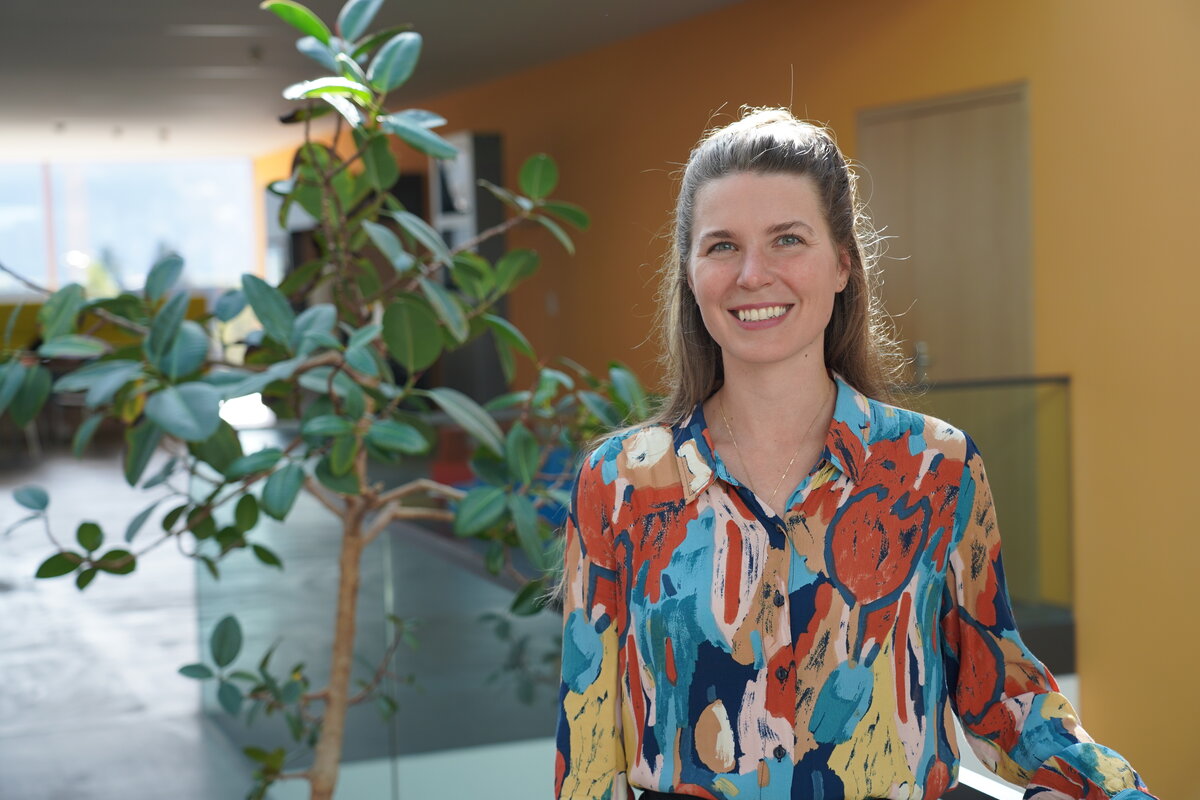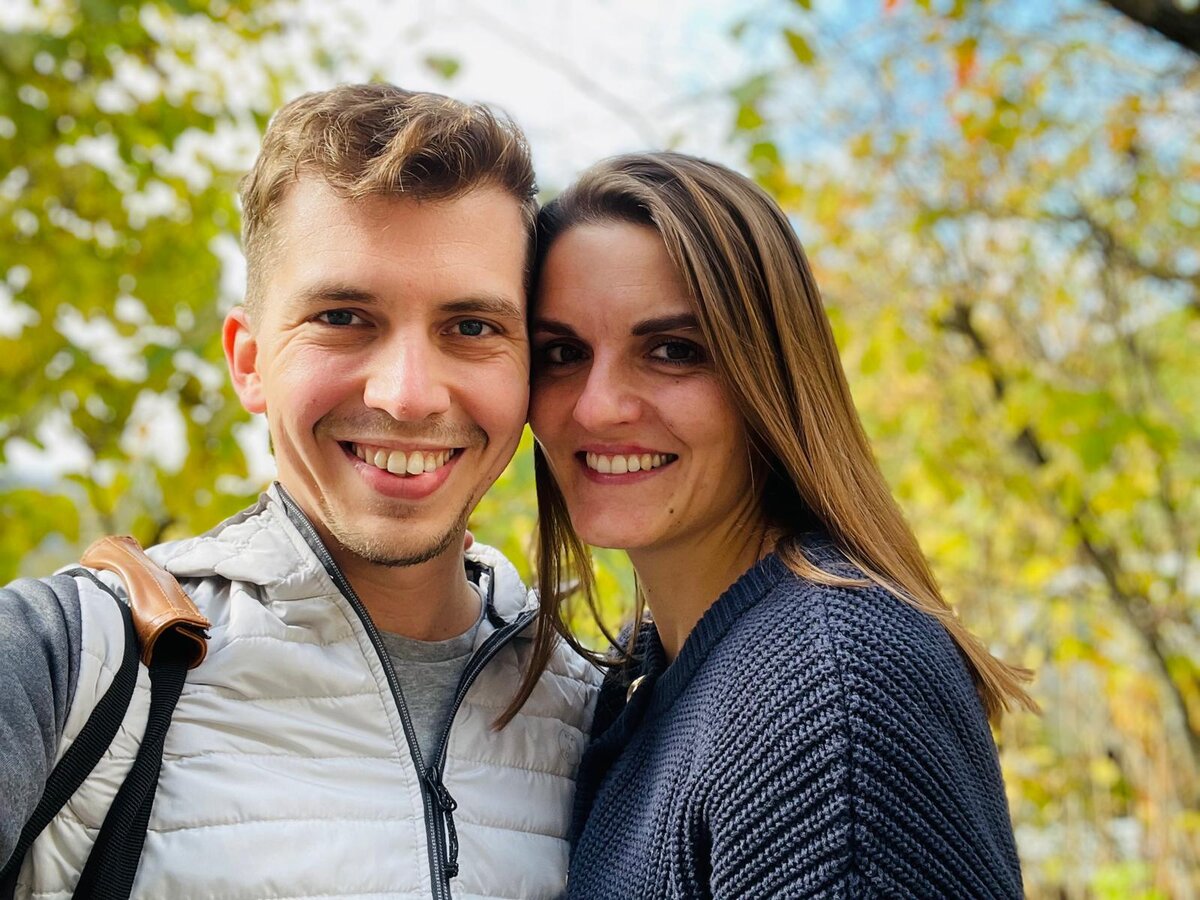Analyzing microplastics using Raman microscopy: students conduct research at the FHV
20.11.2025Elena Klehenz and Janik Loibnegger immersed themselves in the world of applied research for four weeks. Their student internship at the microtechnology research center offered them exciting insights into everyday laboratory life and the opportunity to actively conduct research themselves. Their topic: microplastics - an invisible but highly topical environmental problem. The aim was to use a Raman microscope to find out how microplastic particles can be detected in drinking water and sea salt.
Experiencing research up close
White protective clothing, a clean room, state-of-the-art equipment and two curious young people discovering a whole new world. "We knew that microplastics were a problem. But here we learned how difficult it is to really make it visible," say Elena and Janik.
The focus was on practical work: preparing samples, analyzing them with the Raman microscope, identifying particles and documenting the results. Various measurement settings were tested in order to optimize the measurement quality. It was particularly exciting to discover that the abrasion of a plastic mill releases many plastic particles when grinding salt - a direct link between research and everyday life.
Learning how research works
The work placement offered much more than "just working". The students learned how research really works: Carefully preparing samples, comparing measurement methods, critically examining data and questioning results and, above all, being patient. "Not everything works immediately in research. But that's exactly what makes it exciting: trying things out, failing, breaking new ground and ultimately finding answers," says Janik.
The two students particularly appreciated the opportunity to contribute and implement their own ideas. Teamwork and responsibility for real results took center stage and showed that Research is not abstract, but intervenes directly in life.
Inspiration for the future
Elena and Janik were supported by their supervisor Matthias Domke and the rest of the team at the microtechnology research center. The work placement not only offered insights into current research questions, but also the opportunity to recognize personal potential and hone skills.
Research at the FHV is practical, socially relevant and close to people. "The scientific work placement funded by the FFG shows that enthusiasm for science can be awakened at a young age. Elena and Janik have experienced that research asks questions, takes a critical look and seeks solutions, ideally helping to shape the future," sums up their supervisor Matthias Domke, an experienced scientist at the FHV's microtechnology research center.



